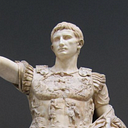What’s in a Name? How Words Create Categories of People

In one memorable scene in 1984, a Party bigwig extols the fundamental importance of Newspeak, the regime’s new version of English, to the totalitarian future. Could a dissident even evoke the ideal of “freedom” when the very word has been abolished?
It is a compelling insight. Coining a word for something changes the way people talk about and conceptualise it. Imagine how different the political discourse of the past century and a half would have been if Karl Marx had never invented the term “capitalism” to transform the status quo everyone previously took for granted into an oppressive rival system to his?
He was certainly not the first to recognise the significance of words. Ancient Greeks called anyone who did not speak their language a “barbarian.” The Chinese and Japanese especially liked to otherise everyone else in the world: when I was working in China, my colleagues used one pejorative, guizi, to refer to me, French tourists, an Indian client, and Barack Obama. (It’s pronounced “gway-dzuh,” if you want to be xenophobic in Mandarin.)
Language is often associated with nationalism, but labels are equally critical to defining other groupings of people, including religions. “Christian” was originally a Roman slur, but the followers of Jesus made it their own; centuries later, when they were on top, they crammed all the diverse polytheistic cults of the world into one new word. Pagus was a Latin word for a rural village, and the jumped-up Christians slandered everyone from backward farmers to conservative senators as “pagans,” with roughly the same connotation as the American English word “redneck.”
When the Romans’ Spanish descendants conquered a worldwide empire, they classified its infinite variety of peoples as gente sin razón, “people without reason.” That kind of terminology makes it easy to justify paternalistic tyranny. More enduring is the etymological tautology “Hindu,” which the British simply borrowed from the Persian word for India. No one in India thought of all of the subcontinent’s myriad spiritual practices as one discrete religion, until bewildered Britons made up a word for it.

As the meanings of words change, so does the way we think of those to whom they refer. Medieval Frenchmen named holier-than-thou Normans after their favoured English exclamation “By God!,” but in modern English, “bigot” has a somewhat different meaning. British arrivals to New York called its Dutch inhabitants by the popular nickname Janke, but then the Dutch flipped “Yankee” back on the Anglos. The Thuggee were a bizarre religious cult that terrorised India as they pleased their god through highway robbery- the British suppressed them, but fleeced their name as a useful new word.
In a way, inventing a word for a people conjures that people into being. In the middle of the 19th Century, Europe was turned upside down because all of a sudden Rhinelanders, Prussians, and Bavarians (but not Austrians) decided they were Germans first and foremost, while Romans, Venetians, and Sicilians all became Italians.
Until the 1960s, the US had no overarching census category for people from Mexico, Guatemala, Cuba, and Chile, but now being “Hispanic” is at the core of how Americans perceive others and themselves. Likewise, Italians, Greeks, and some Eastern Europeans were considered “non-white” for much of the 20th Century, but a few generations of assimilation changed their very identities.

Labels can be controversial. When the Obama Administration tried to add a new category, MENA (Middle East and North Africa), which would similarly change the way Americans of all backgrounds conceptualise people from a broad swath of the world, Republicans shot them down. Across the Pond, Northern Irish Loyalists whose ancestors have lived in the Emerald Isle since time immemorial bristle at anyone who calls them Irish instead of British.
Language is critical to nationalism, but it also defines other aspects of identity. These can get cuttingly controversial. For example, there have always been people who feel uncomfortable with the sex as which they were born. But imagine how much harder it would be to conceptualise this, let alone express it, without modern psychological vocabulary that draws a distinction between sex and gender and enables people to identify as “trans.” An analogous revolution occurred in the 19th Century, when a new word enabled people to be “homosexuals,” rather than lost souls inclined to a certain variety of sinful lust. Defining a group certainly does not directly lead to accepting it, but it can be a necessary first step.
This does not always work. Harvard psychologist Steven Pinker has described disability activists’ well-intentioned efforts to discourage insulting language (e.g., “handicapped person” instead of “cripple”) as a “euphemism treadmill.” “Retarded,” for example, was originally coined as a polite, scientific alternative to older words, but since the condition it described is an unpleasant one, it inevitably took on the same ugly tone.
Indeed, new words can also create nasty connotations. This is obviously true with insults: for example, if a woman is labeled a “bitch,” it triggers a cascade of preconceptions in how others see her. It may be legally fair to call immigrants who arrive improperly “illegals,” but it is hard to argue that that label does not dehumanise them. This year’s hottest new linguistic controversy is over whether the term “anti-vaxxer,” generally not a compliment, should be leveled against those who specifically object to Covid vaccine mandates.

A few years ago, I was surprised to learn that, before the 1930s, it was lexically impossible to talk about “racism.” Many of the terms that underpin our view of the world either had different shades of meaning or did not even exist in the not-so-distant past. Language shapes the way we perceive the world around us. In more ways than one, the words you use define who you are.
